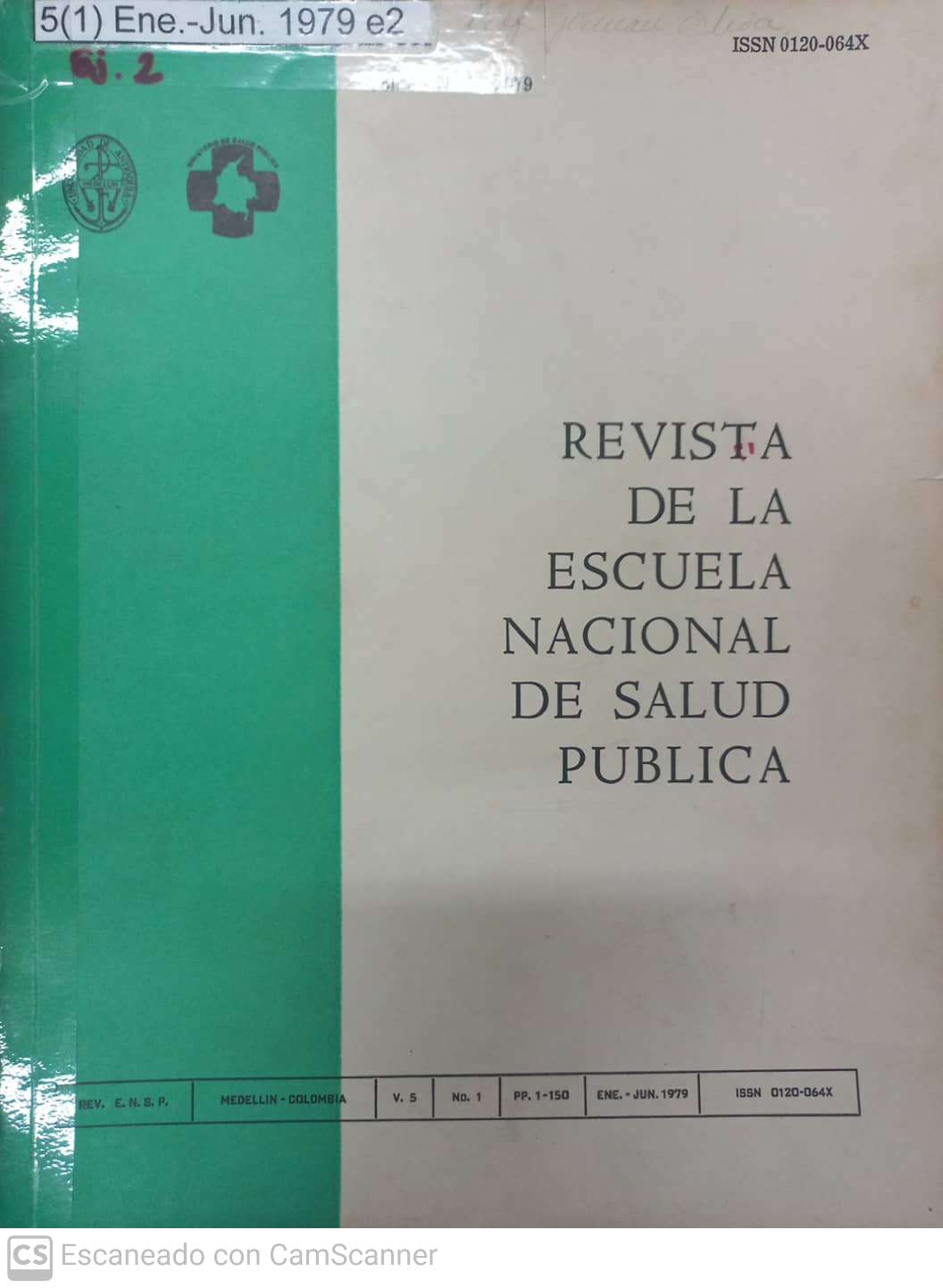MORTALIDAD DE PEATONES EN ACCIDENTES DE TRANSITO EN LA CIUDAD DE MEDELLIN
Resumen
Es un hecho reconocido la importancia que tienen los accidentes de tránsito en la morbilidad y mortalidad de las personas en la época actual. En Colombia este hecho se expresa en especial en las grandes ciudades en las que es ya la primera causa de muerte en el grupo de 30 a 40 años de edad. (1)
Esta mortalidad ha venido incrementándose en números absolutos, aunque, es preciso señalarlo, en términos de tasas se nota una estabilización y aún una disminución de la tasa global de mortalidad por accidentes de tránsito, hecho que es válido tanto para el país como para Medellín, si tenemos en cuenta que en 1970 el índice de muertes por esta causa fue de 10.23 y en 1976 el índice de muertes fue de 10.63.(2)
Las razones de esta invarianza es necesario esclarecerlas sobre todo ante el hecho de que el parque auto- motor se ha aumentado en los últimos años y especialmente a partir de 1973, de una manera notable. Según el INTRA en 1973 había aproximadamente la mitad de los vehículos en el país de los que en 1977 estaban registrados.
Uno de los aspectos más importantes destacados en investigaciones realizadas por nosotros (3) en la forma cómo en otros países y concretamente en Medellín, el peatón es afectado de una manera directa y masiva por el tránsito automotor.
Descargas
Citas
1.Informe del Ministro de Salud al Congreso. 1978.
Boletín del INTRA. 1969-1976. Documento OP-001, Mayo-78.
3. Vasco A., Giraldo C. Accidentes de Tránsito en el Municipio de Medellín, 1976-1977. En prensa.
Giraldo César. Mortalidad en accidentes de Tránsito en el Municipio de Medellín. 1970 1971. Rev. Antioquia Médica. 25(6) 463 466, 1975.
Descargas
Publicado
Cómo citar
Número
Sección
Licencia
Derechos de autor 2025 Alberto Vasco U, Cesar Augusto Giraldo G.

Esta obra está bajo una licencia internacional Creative Commons Atribución-NoComercial-CompartirIgual 4.0.
El autor o los autores conserva(n) los derechos morales y cede(n) los derechos patrimoniales que corresponderán a la Universidad de Antioquia, para publicarlo, distribuir copias electrónicas, incluirlas en servicios de indización, directorios o bases de datos nacionales e internacionales en Acceso Abierto, bajo la licencia Creative Commons Atribución-No Comercial-Compartir Igual 4.0 Internacional Comercial (CC BY-NC-SA) la cual permite a otros distribuir, remezclar, retocar y crear a partir de la obra de modo no comercial, siempre y cuando se dé crédito respectivo y licencien las nuevas creaciones bajo las mismas condiciones.








 --
-- --
-- --
--